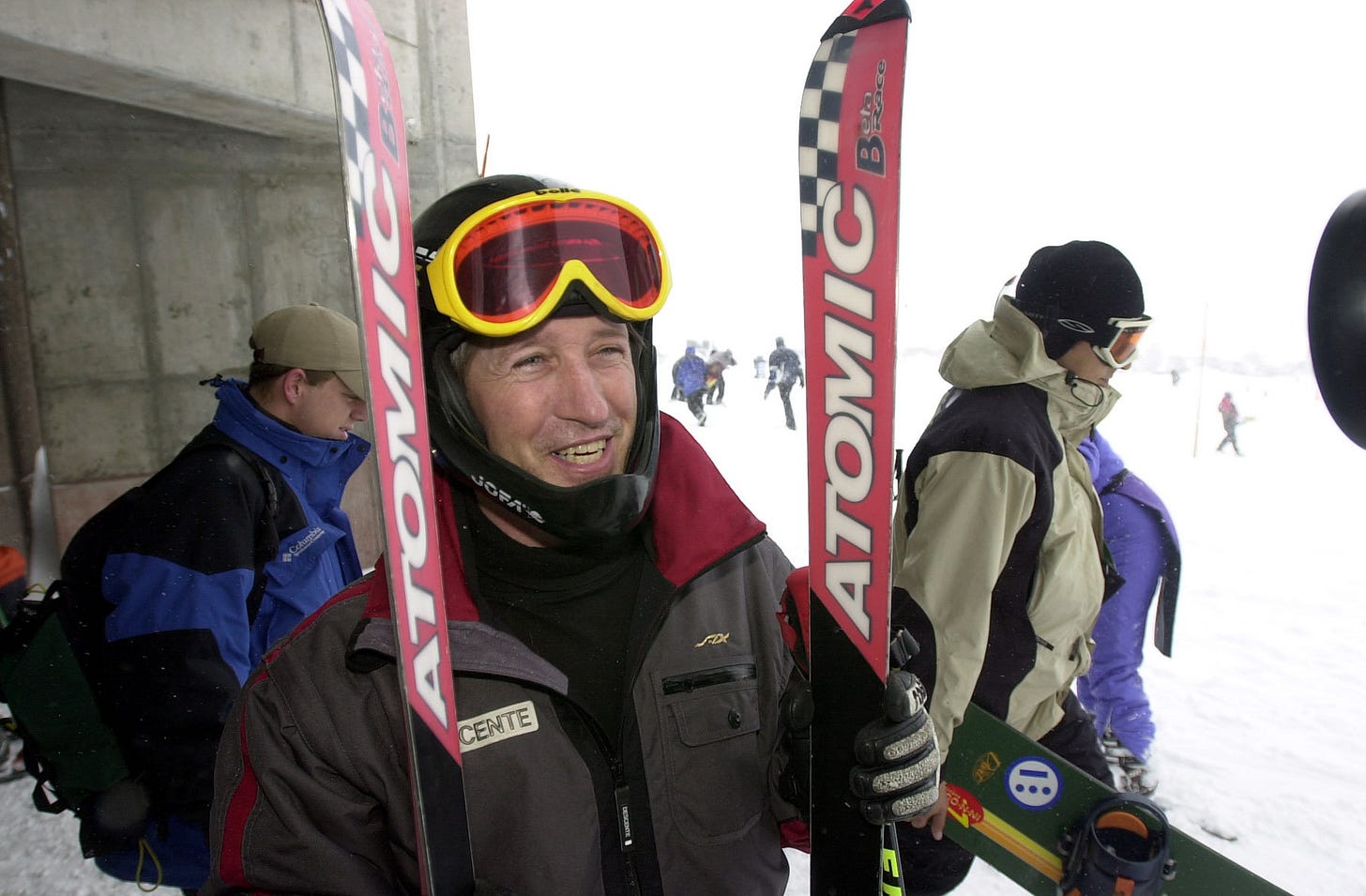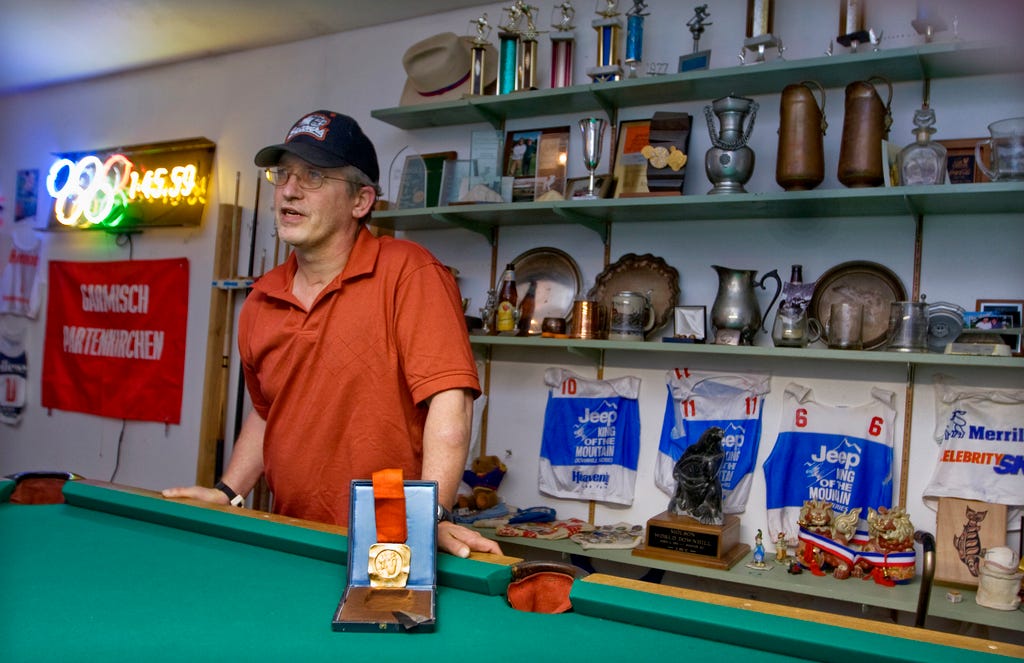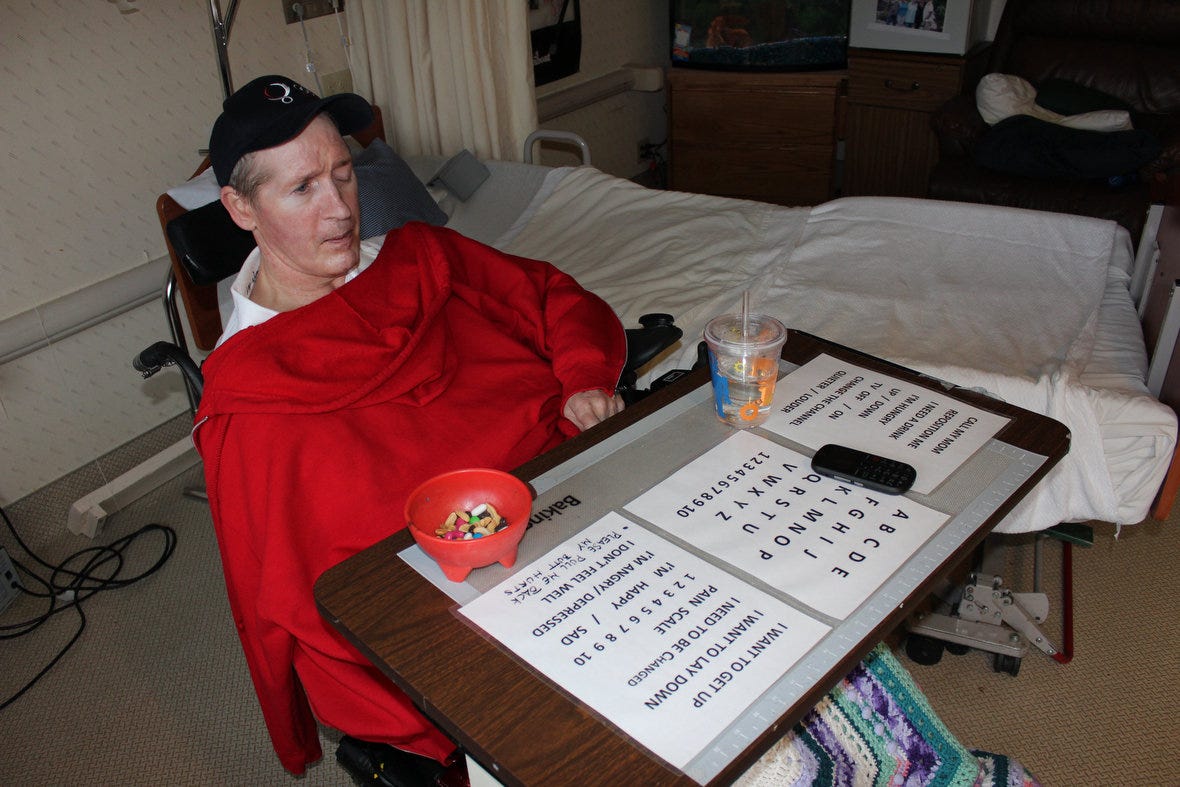Canzano: Bill Johnson left a lesson for other star athletes
Who are they anyway?
Bill Johnson is dead. He’s been gone for six years. But I was driving to Mount Hood with my family this summer and passed by his old place.
Johnson lived alone in a mobile home, tucked behind a roadside restaurant in the mountain village of Zigzag. I visited the 1984 Olympic downhill ski champion a half dozen times over the years. I’d make the drive, park, knock on the door, and wait. He’d shuffle across the room, fumble with the lock, and open the door in a haze of marijuana smoke.
“I liked to go fast,” Johnson told me.
In the end, he didn’t go fast.
Johnson ended up in a nursing home in Gresham. He couldn’t walk. His speech was slurred. A series of strokes left one eye shut and all he could do to communicate was grunt and nod when I pointed to letters and phrases on a laminated card.
During one visit, I fed him a chocolate bar. On another occasion, we watched the Winter Olympics together on television. At one point, Johnson indicated he wanted to smoke a cigarette. I summoned a nurse, who helped the former champion skier to the patio and attached a rubber tube to a lit cigarette in an ash tray. I sat in silence while he sucked on the tube and stared off.
I woke today thinking about Johnson, who died at age 55 in 2016. Maybe because his story is equal parts thrilling and tragic. Maybe because I can’t look at Mount Hood without thinking about the man who owned it. Or maybe because I’ve been thinking a lot about the legacy of star athletes.
Tom Brady retired, then un-retired. The first ballot Hall of Fame quarterback looks like a guy wrestling with his identity. Russell Wilson suited up on Monday night in Seattle. The star quarterback who led the Seahawks to the franchise’s only Super Bowl championship got booed and jeered.
Why?
Because he’s wearing a Denver Broncos uniform this season.
I doubt those two will suffer the same fate as Bill Johnson. But the stories of generational athletes belong to the same genre. The overriding question is, who are they anyway? What do they really mean to us? And who will be there to celebrate them when the parades are gone and the victories are long past?
Bill Johnson was 22 when he won gold in Sarajevo in 1984. I asked Johnson to show me the medal during one of my visits. It was in a box on a shelf in the back room of his trailer, dinged up because he’d thrown it against the wall in a drunken fit. I asked if he’d put the medal around his neck, but Johnson refused.
“Do you know why I tried to come back?” he blurted out.
I didn’t.
“I wanted my life back.”
Johnson was 40 when he attempted his Olympic comeback. It was 2001 and his body was aging. His wife had left him. Johnson was on a training run in Montana, barreling down when he caught an edge of his ski, lost control, hurled end-over-end, and slammed his head against the mountain.
“I don’t remember any of it,” he said. “Maybe the brain has a way of protecting itself.”
His wife never came back. Johnson did grow closer to his two grown sons near the end. But every time I drive Highway 26 toward the mountain, I’m struck by the fact that the very thing that made Bill Johnson a champion, also left him in a wheelchair.
He was fearless.
Former Olympic ski teammate Phil Mahre told me, “Bill had an inner-drive and deep confidence in himself that very few possess.”
Actor Anthony Edwards played Johnson in a movie in 1985. It was titled, “Going for the Gold.” Johnson was the first American male to win gold in Alpine skiing. Edwards spent a bunch of time with Johnson preparing for the role.
“Competition is so much about psychological warfare,” Edwards told me once, “and that’s what he loved to play.”
Solitaire — was Johnson’s preferred game by the time I got to know him. He’d sit in his trailer in front of an old computer and pass the time. His mother, DB, would take him to lunch a few times a week. She was a saint. Johnson was stubborn, reclusive, and could often be difficult.
Regrets?
Sure. Bill Johnson had them. He lamented once that he should have treated people better. He confided that he wished he’d been a better husband and father. His sons had forgiven him and, in his late years, the boys tattooed the Olympic Rings over their chests — near their hearts — as a tribute to their dad.
During one of my visits to the nursing home, Johnson showed me around in his motorized wheel chair. He raced through the hallways, darting left, then right. The staff in the hallways passed him and said, “Hi Bill.”
Johnson kept racing, his one good eye trained ahead.
It wasn’t the same as going down a mountain at 90 miles per hour. But he looked happy navigating those hallways. Maybe the lesson that Bill Johnson left us with is a simple one — we are not our accomplishments. He wasn’t a gold medal. He wasn’t an American record. He was a guy who liked to push the limit and go fast.
I wish the guy had been as happy to slow down.
Thank you for reading. I appreciate all who have supported, subscribed and shared my new independent endeavor with friends and family in recent months. If you haven’t already — please consider subscribing.





I know you’ve written about Bill before but his story never seems to get stale. Well done, John!
You describe life situations so well and this is another tearjerker. Such a tragic ending to an athlete who could have gone on and been a role model for young skiers had he not been so self-consumed with the sport and not life outside of it. Thank you for sharing another heartfelt message, John!